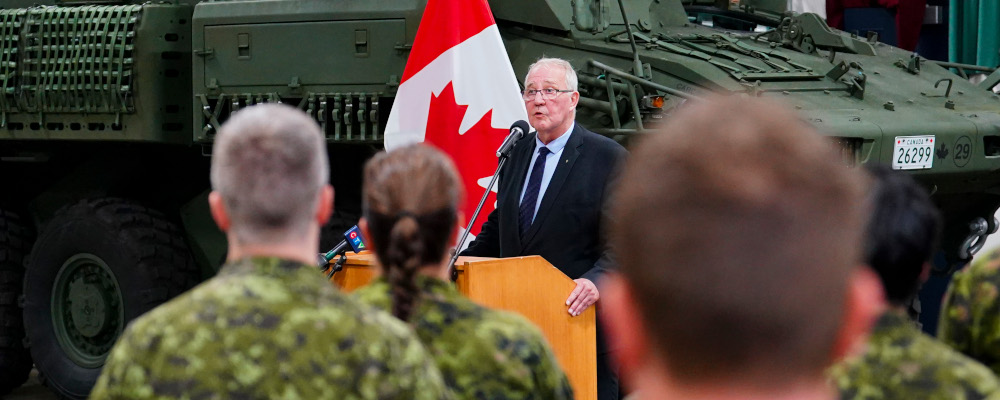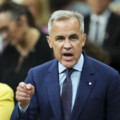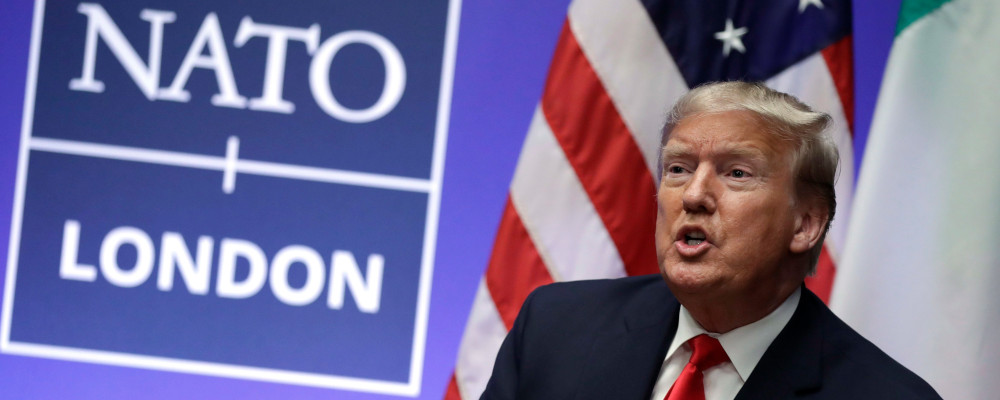During his election campaign against Hillary Clinton, it was observed that Donald Trump should be taken seriously but not literally while the reverse applied to his opponent. It is still useful advice in assessing Trump’s plans for NATO. When Trump says he would encourage others to invade countries that fail to spend enough to defend themselves, the rule likely applies.
Concern over Trump’s statements has broken out across the West as Trump deploys his usual inflammatory and outrageous rhetoric in questioning whether the U.S. should defend those countries that don’t make the commitment to defend themselves. But he also, more astutely, asks why everyone seems to be content to rely on the U.S., who now shoulders about 70 percent of defence spending for the entire alliance. Of course, Barack Obama’s administration used to make the same points, but more diplomatically and privately, so they could be easily ignored. The results spoke for themselves.
The design of NATO has some pretty strong central tenets. By combining the forces of countries with similar attitudes towards democracy and human rights (let’s leave Turkey aside for simplicity), any adversary faces a united front. And by making an attack on one an attack on all, the deterrent becomes even stronger. But the assumption that seemed obvious at the time was that countries would still be responsible for defending themselves. When NATO was founded in 1949, that seemed like an obvious condition, with even Canada having played a major role in the Second World War. Back then, we had the world’s fourth-largest air force and third-largest navy. Now we use them to shovel snow.
The guarantee of mutual defence has caused non-U.S. NATO members to wind down spending in favour of reliance on the U.S., decrement defence spending to fund entitlement programs, turn their defence departments into either industrial development strategies, regional economic distribution strategies, or, most recently, a way to advance the woke agenda. All of these objectives detract from the essential objective of what defence needs to deliver: a lethal and cost-effective capability to defend from and deter aggression.
The questions that we should be asking are not what percentage of GDP we are spending or how we can justify the little that we do spend, but why a rich country like Canada does not fulfil its basic responsibility to itself and its allies to create a credible defence capability that could respond to the threats that are becoming clearer and clearer every day. With a territory as big as Canada’s, the cost to do so may be much higher than two percent, particularly given the military deficit we have created with years of neglect. Why should that be someone else’s problem?
It’s clear that our prime minister has little interest in defending the country. It shouldn’t be surprising that someone so busy denigrating the achievements of Western culture as oppressive and colonialist would deem them not worth defending. We know he always follows the science, and mainly it’s political science. He knows how to read the polls and they tell him that Canadians do not want to make the economic sacrifices that it would take to create the capability to defend ourselves. He is not the problem, it’s us. All the Canadians who would like to “give peace a chance” need to take Trotsky seriously when he said, “You may not be interested in war, but war is interested in you.”
The war in Gaza right now is not just about Zionism. It’s a fundamental battle between those who believe in Western rights and freedoms—political freedoms, freedom of speech, religious freedom, women’s rights, minority rights—and those who would like to eliminate them in favour of either religious dogma or authoritarian regimes. It’s a battle between Western liberal democracy and Hamas chaos. And to think it will be contained in the Middle East is wishful thinking, as evidenced by the shocking support shown for the latter in Canadian domestic demonstrations.

We don’t know what a return of the Trump circus to Washington will bring, since unpredictability is one of his core tactics. But the video of Trump excoriating the Germans in front of the entire UN for the reckless dependency they were creating in building a pipeline to buy Russian gas should be suggestive. The German delegation could not contain their laughter. Maybe revisit the video of Trump practically coming over the table in a meeting with Merkel asking her why his country should defend Germany when they sign up for total energy dependency on Russia.
What the apoplectic Western politicians and commentators are saying in response to Trump’s criticism of NATO is that it would provoke such a crisis that they might have to spend more on their own defence. That is welcome. And they had better figure out how, as U.S. politicians can do political science as well. The voters who support Trump, which may turn out to be a majority of Americans, are tired of paying most of the bill for the protection of the Western world.
Two reliable observations about Trump remain. The first is that one of the most frustrating things about Trump is how often he turns out to be right. And the second is that it’s too bad someone like him has to be elected to get anything difficult done. But for anyone who cares about NATO and the general protection of Western enlightenment rights and freedoms, Trump could be our best friend.
Recommended for You

‘Putin has no intention of stopping this war’: Sir Bill Browder on three years of war in Ukraine and how Russia is evading sanctions

The Weekly Wrap: The Liberals must abandon their internet regulation agenda

‘This is going to take a carefully executed strategy’: Ann Fitz-Gerald on whether Canada will ever spend 5 percent of its GDP on defence

DeepDive: It’s time to end the boom-and-bust cycle of Canadian shipbuilding





